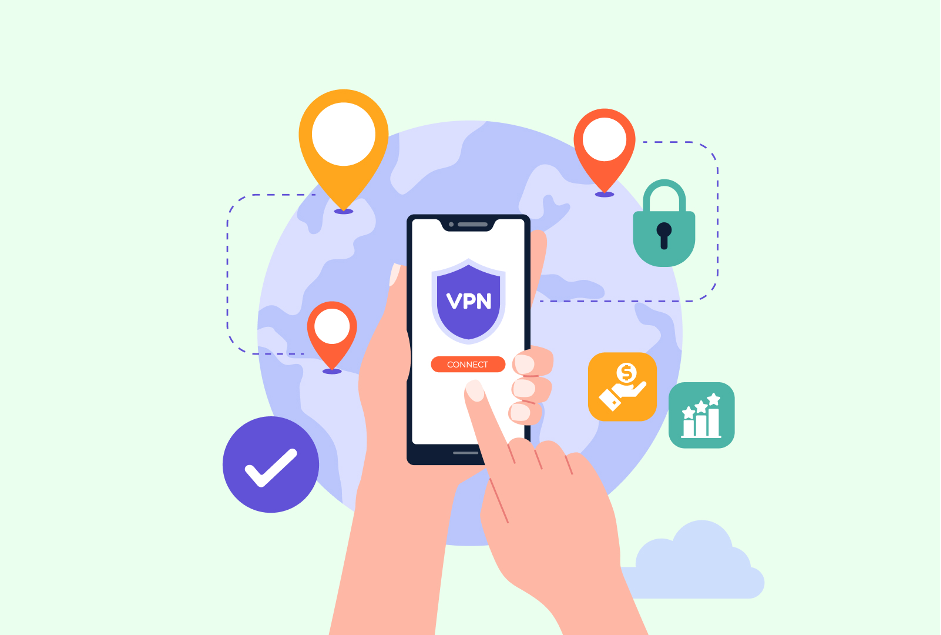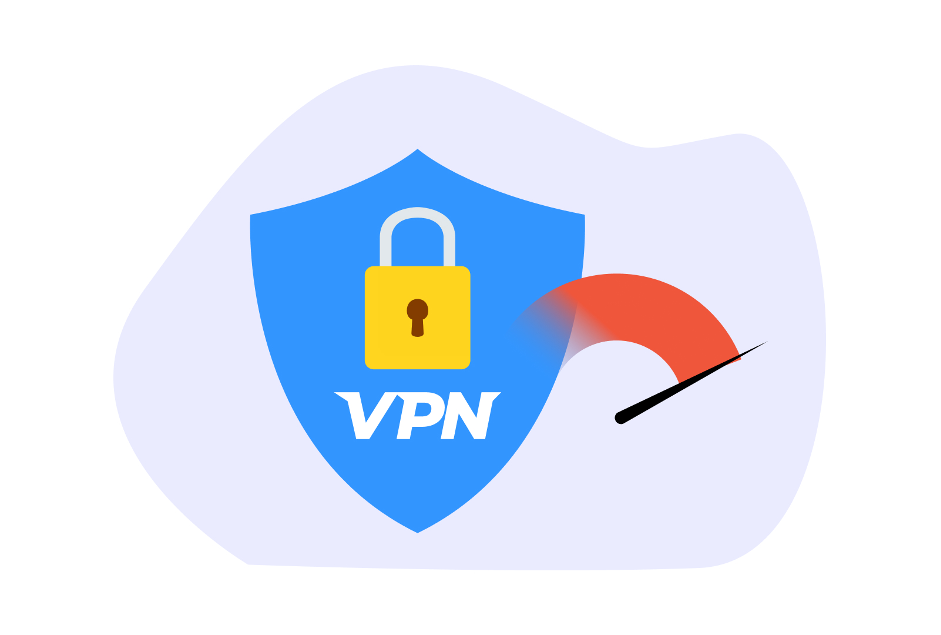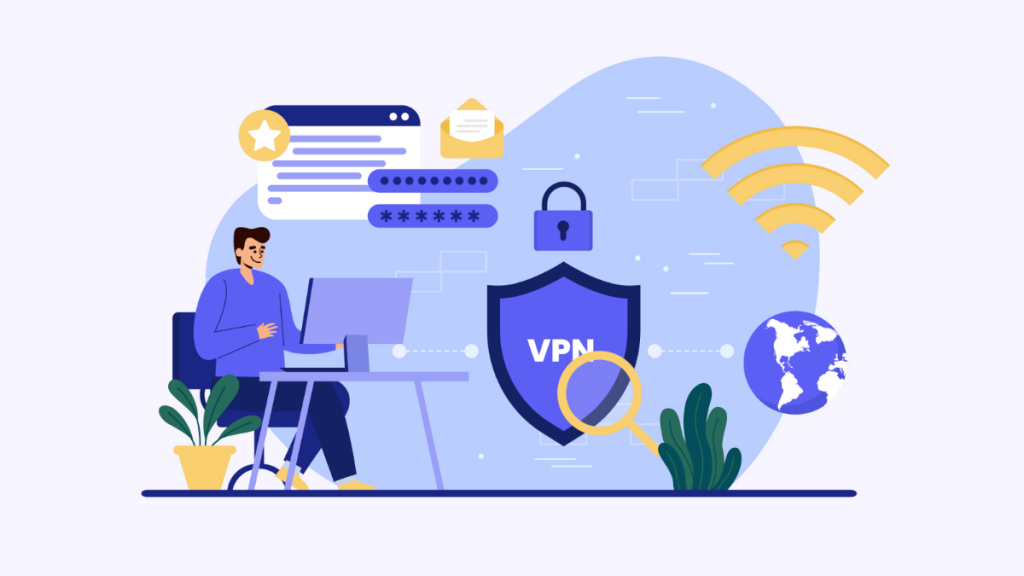Although there are hundreds of VPNs available, not all of them are reliable or even genuine. It’s critical to do your homework on tested and certified VPNs before deciding which one is best for you. In this manner, you’ll be able to get a VPN that you are confident in.
We’ve evaluated and paid for the best VPN providers. We’ve put up a list of the best VPNs among the leading manufacturers available after examining the features, UI, cost, and speed tests. Please be free to apply these research techniques to your own hunt. This research methodology describes how we test VPNs to aid in your search.
Why write a VPN review?
A provider review’s primary goal is to examine the essential components that can make or break a VPN service and assess how well this particular offering stacks up, determining whether the product is worthwhile to use and whether you could get a better deal elsewhere.
Our Rigorous VPN Testing Process
Our tech experts have put the top 20 VPN services to the test, three times a day, every day, to give you a thorough analysis of their performance.
What We Look For
We dive into the most important security features like VPN protocols, encryption, split tunneling, kill switches, and speed. We also check out the company itself to make sure it lives up to its claims and keeps your data safe.
How We Test
Since results can vary day-to-day, we make sure to triple-test all the VPNs using the same criteria, in the same locations, under the same conditions. At VPNhunt, we strive to recommend products that work best at all times of the day, so that your work is not hampered no matter what time of the day or night you work. We check VPN speeds at three key times: 9 a.m. (start of the workday), 1 p.m. (lunch), and 6 p.m. (end of the workday) to give you the most accurate and unbiased results.
Our Two-Part Testing Process
1. Research and Evaluation: We start by researching the VPN provider to understand the service and the company behind it. We look at over 25 different elements during this stage.
2. Testing: We then conduct a series of tests to see how easy the VPN is to use, its functionality, and speed retention by comparing the VPN speed with our original broadband speed.
What We Check

– Security and Features: We check the encryption and protocols offered by the VPN, additional security features like kill switches and split tunneling, and whether the company has a strict no-log policy.
– Reputation and Credibility: We review the provider’s claims and check for independent audits to ensure which VPN is most trusted and proves true to its claims.
– Price and Value for Money: We evaluate whether the VPN provides good value for its cost.
– Base Country: The VPN’s base location affects overall security due to varying data laws.
Security and Features Breakdown
– VPN Protocols and Encryption: We check if there are multiple protocol options, including fast ones like WireGuard, and whether the provider uses top-notch AES-256 encryption.
– Security Features: We test how well the kill switch and split tunneling work by interrupting the connection and excluding certain apps from the VPN.
– No-Log Policy: We verify that the VPN provider truly doesn’t log your data by looking for independent audits.
– Base Country: We consider how the VPN’s home country’s data laws impact your privacy.
Reputation and Credibility
Knowing the company behind the VPN is crucial. We make sure no sketchy, unknown VPNs make it to our list by analyzing the company and its values. This way, you can trust that your data is in safe and reliable hands.
We focus on three key aspects: longevity, transparency, and feedback.
– Years in Business: What is the duration of the company’s existence? A VPN that has been operating for eight or ten years has probably encountered and conquered numerous obstacles, strengthened its core principles, and established a strong workplace culture. They’ve had time to polish their offering, get input from customers, and fix problems. These businesses are typically more dependable.
– Scandals or Data Leaks: We investigate the VPN provider’s handling of any recent scandals or data leaks. We examine their user-communication strategies and determine whether they were open and truthful. Ideally, there haven’t been any scandals involving the company.
– Real User Feedback: We examine user feedback to understand real experiences with the service. While online reviews can be tricky, if most reviews complain about IP leaks or rude support, we take that seriously.
Price and Value for Money
Price is a big factor in our analysis. Higher prices don’t always mean better quality. We look at the price and whether it’s reasonable for what you get.
– The Price: On average, a VPN costs 3-5 dollars per month with the longest subscription. We consider the subscription length, monthly rate, and price after initial discounts end.
– The Package: If the rate is high, we check what’s included in the package. Are there extras like a password manager, threat protection, or antivirus? If so, a higher price might be justified. If we don’t think the product offers good value, we won’t recommend it.
Testing
Our reviews are backed by real security experts doing hands-on testing. We assess the performance, compatibility, with ease of use, geo-block bypassing, and service.
We don’t test in perfect “lab conditions” but in real-world scenarios. This means we account for varying factors like connection speed and user experience to provide the most accurate view of the VPN’s performance.
What We Test
– Functionality and Compatibility: A good VPN should be easy to use. Whether it’s your first time or your hundredth, navigating the features and server choices should be simple. We explore the user interface and the app’s compatibility with different devices.
– User Interface: Each VPN has a different interface and design, affecting user experience. Navigating, connecting to a server, activating a kill switch, or switching locations should be quick and easy. If the app lags or the connection takes forever, it loses points.
Compatibility
Often, a single VPN subscription is used on multiple devices with different operating systems. So, the app must work just as well on all these platforms.
– Multiple Devices Connected at Once: We verify the number of devices you can connect to a single subscription. We then evaluate the VPN on several devices, including phones, tablets, and laptops.
– Device Support: Providers that enable VPN connections on gadgets like game consoles, smart TVs, and routers—which are generally incompatible with ordinary VPN apps—get bonus points.
Performance

Because a VPN adds an extra step to the —encrypting and decrypting your data—it will all slow down your internet speed. The best VPNs should ideally slightly slow down your connection. However, some might make using the internet frustrating.
How much your speed drops depends on various factors, mainly the server location you choose. While data travels at light speed, it still takes time. It’s quicker to reach a data center 200 km away than one 5,000 km away.
We calculate average speed retention by comparing speeds from different server locations to our base broadband speed.
Geo-Unblocking
Accessing geo-restricted content is one of the most popular uses for a VPN, along with security. A VPN helps you access region-specific websites or different libraries on popular streaming platforms. Sometimes, content is only available in certain locations due to exclusive licensing agreements.
By connecting to a server in another country, you get the IP address of that location. A VPN makes it appear like you’re browsing from the server country instead of your actual location.
To test a VPN’s geo-unblocking ability, we try to access content on popular streaming platforms like:
– Netflix
– Paramount+
– Amazon Prime Video
– Hulu
– Disney+
We test these in popular regions like the US, UK, Japan and Australia. A VPN is capable of bypassing geo-restrictions if we can stream content from these countries.
This also shows if the VPN is leaking your IP address. If it is, it can’t unblock geo-restricted content and compromises your online safety.
Customer Experience
Using a VPN should be easy, but sometimes issues arise. In these cases, good customer support is vital for quick and effective help.
– Support Channels: We note all available support channels—live chat, phone, email, or all. More channels usually mean faster responses and better help.
– Live Chat Testing: We contact live chat with simple questions to check response time and the staff’s knowledge. We focus on three main aspects:
– Initial Connection Time: How long does it take to connect with a real person?
– Agent Helpfulness: Is the agent knowledgeable and able to answer the question immediately? Can they solve the problem?
– Overall Resolution Time: How long does it take to resolve the issue from start to finish?
Experiences can vary. If the live chat agent can’t help, we check the provider’s knowledge base to see if it’s up-to-date and contains useful information like FAQs and guides.
By focusing on these aspects, we ensure our VPN recommendations are reliable, secure, and provide good value for your money.
Summing Up
The evaluation will conclude with a summary of the reviewer’s thoughts and conclusions. It is impossible for us to say that one service is the best choice for every user in every circumstance. It would be deceptive to suggest that one supplier can meet everyone’s needs because each person’s situation is distinct, and their wants are unique.
Certain VPNs are better suited for tormenting, while others are better for streaming, and still others are excellent for those who just want unbreakable technological protection. In order to provide our readers with the information they need to navigate the VPN market and make an informed choice, we will always recommend the options we believe are best in any particular scenario.
